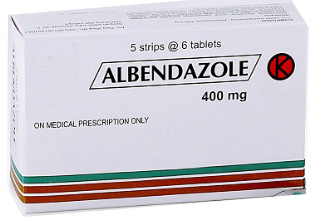Albendazole Overview
Albendazole is an antiparasitic agent belonging to the class of medications known as anthelmintics. It operates by interdicting the energy metabolism of various parasitic worms, leading to their eventual immobilization and death. Its efficacy extends across a range of parasitic infestations, notably those caused by helminths such as tapeworms and roundworms.
Indications for Use
Albendazole is prescribed for the treatment of various parasitic worm infections. It is effective against conditions such as neurocysticercosis (infection caused by the pork tapeworm in the muscles, brain, and eyes), echinococcosis (caused by the dog tapeworm), pinworm, hookworm, whipworm, roundworm, and trichinosis, among others.
Dosage and Administration
Dosage of albendazole varies depending on the specific infection and patient attributes. Infections like neurocysticercosis and hydatid disease may necessitate treatment courses that range from days to months, with dosages adjusted for patient body weight. It is often taken with meals, particularly those high in fat, to enhance absorption. For pediatric patients, dosing recommendations must be carefully followed with respect to age and weight.
Contraindications
Albendazole should be avoided in individuals who have shown hypersensitivity to the active compound or any excipients in the formulation. It’s also contraindicated in pregnant women, owing to potential harm to the developing fetus.
Drug Interactions
This medication may interact with other pharmaceuticals, leading to altered effects. Notable interactions include substances like cimetidine, praziquantel, and dexamethasone, which can change albendazole concentrations in the body. Carbamazepine and phenytoin can lower albendazole efficacy.
Precautions and Warnings
Before starting treatment, clinicians must apprise patients of the potential for blood cell count disturbances, liver issues, and neurological effects. Regular monitoring via blood tests is recommended to detect hematological changes. Those with liver disease may require extra caution and monitoring during treatment. Discontinuation of the medication might be necessary should severe adverse reactions arise.
Side Effect Profile
Albendazole may prompt a spectrum of adverse effects ranging from mild to severe. Common side effects include stomach pain, nausea, vomiting, and dizziness. More serious reactions such as severe skin rashes, hair loss, and signs of liver or bone marrow suppression warrant immediate medical attention.
Clinical Pharmacology
The pharmacokinetic profile of albendazole is characterized by its conversion in the liver to its active metabolite – albendazole sulfoxide. It is this metabolite that wields potent anthelmintic action. Bioavailability significantly improves with ingestion alongside fatty meals. The drug is further broken down and ultimately eliminated predominantly through the biliary route.
Considerations in Pregnancy
Albendazole is classified as FDA pregnancy category C, signifying potential risks. It should be averted during pregnancy unless absolutely necessary. Due to the theoretical risk of embryotoxicity and teratogenicity, women of childbearing age should use effective contraception during and for a month after the termination of therapy.
Lactation Advisory
Small amounts of albendazole are excreted in breast milk, necessitating caution. Nursing mothers should either discontinue nursing or the medication, taking into account the necessity of the drug to the mother.
Overdose Handling
In the case of overdose, supportive measures and symptomatic treatment should be initiated. Since Albendazole undergoes hepatic metabolism, liver function should be closely monitored. There is no specific antidote, and dialysis is unlikely to be beneficial due to the high degree of protein binding of albendazole and its metabolites.
Storage Guidelines
Store albendazole tablets in a cool, dry place away from light and moisture. Keep the medication out of reach of children to prevent accidental ingestion.
Albendazole FAQs
Can Albendazole be taken on an empty stomach? It’s advisable to take albendazole with food, preferably a fatty meal, to enhance absorption.
Is it safe during pregnancy? Albendazole is not recommended during pregnancy unless the potential benefits justify the potential risks to the fetus.
How long does treatment with Albendazole last? The duration of treatment depends on the infection being treated and can range from a single dose to a few months of therapy.
Reference Materials
For further details on albendazole, consult the following resources:
- U.S. National Library of Medicine’s MedlinePlus
- The Centers for Disease Control and Prevention (CDC)
- World Health Organization (WHO)
Medical journals and publications also provide extensive research on the pharmacological attributes and clinical use of albendazole. Always refer to the product labeling and consult healthcare professionals for individual health concerns and medication guidance.




Reviews
There are no reviews yet.